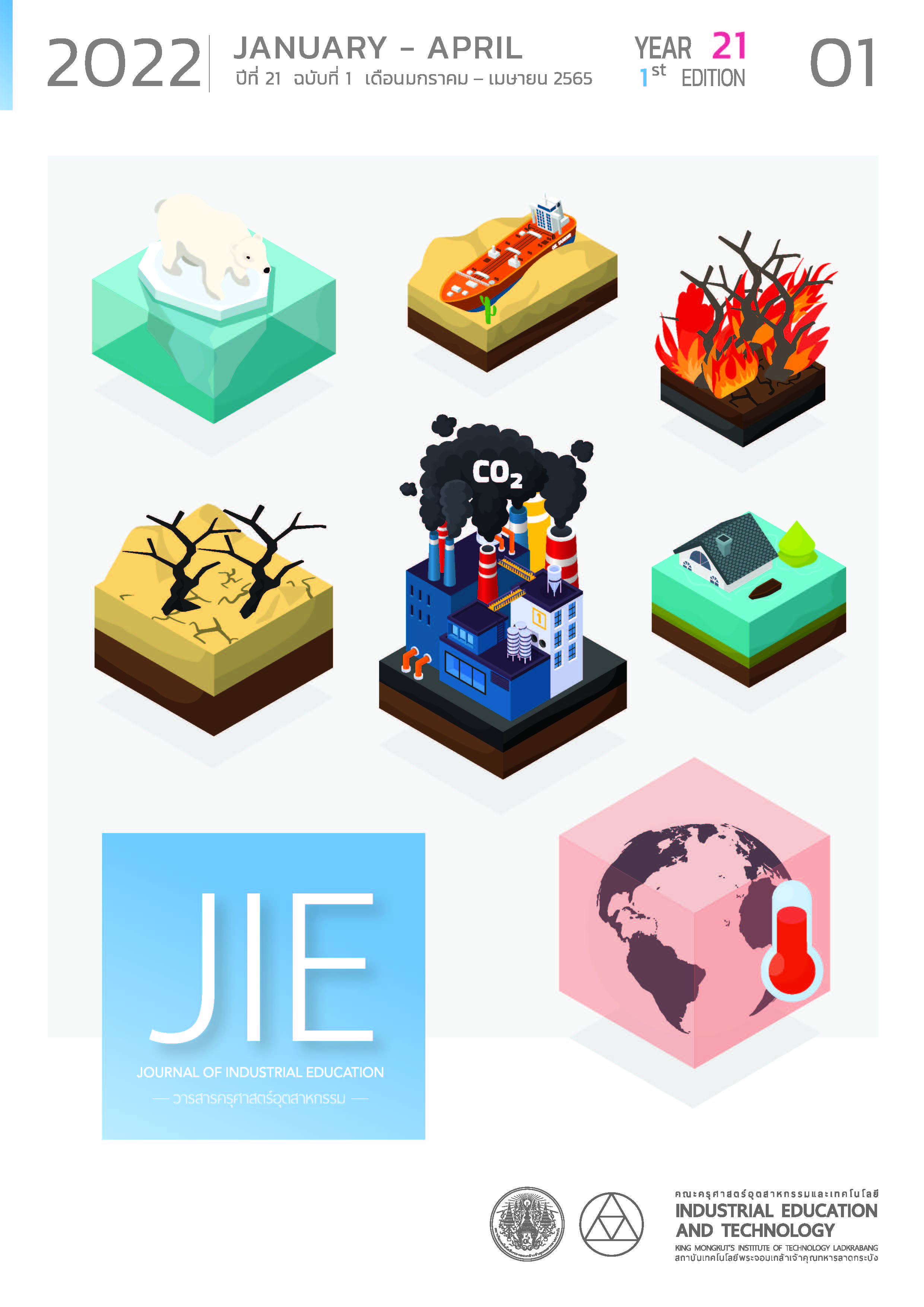RESULTS OF LEARNING ACTIVITES WITH EXERCISE LESSONS ALONG WITH GIVING FEEDBACKS THAT AFFECT MATHEMATICS ACHIEVEMENT ON EXPONENTS OF MATTHAYOMSULSA 1 STUDENTS
Keywords:
Exercise lessons, Providing feedback, Learning achievement, ExponentAbstract
This research investigated and made the comparison of the learning achievements and studied the students' satisfaction after receiving Mathematics learning activities on exponents by exercise lessons and giving feedback. The research participants were 37 students from Mathayomsuksa 1: section 8 of the Demonstration School of Ramkhamhaeng University (Secondary level) selected using the cluster sampling technique. The research instruments were as follows 1) Five learning plans with sets of exercise lessons, which were modified according to the opinions of three experts, checked the Index of Item-Objective Congruence (IOC), 2) Mathematics achievement test on exponents, multiple-choice, four options, 30 items. The index of discrimination was between 0.20 and 0.75. The index of difficulty was between 0.33 and 0.80. The reliability of the whole test was at 0.868, and 3) 15 items of questionnaires for the students' satisfaction towards learning activities by exercise lessons and giving feedback. The questionnaires were composed with a 5-level scale which the reliability was at 0.94. The statistics used in the data analysis were mean, standard deviation, percentage, and t-test statistics. The results showed that the learning activities plans according to the opinion of the experts were effective at a good level ( = 4.44, S.D.= 0.54). The test scores during the study compared with the test scores after the study which the ratios between process efficiency and outcome efficiency (E1/E2) were at 91.62/84.68. They were higher than the set criteria: 75/75. The post-test scores were statistically significantly higher than the pre-test scores by .05. The students were satisfied and interested in Mathematics learning activities on exponents by exercise lessons along with giving feedback. Overall, the feedback was at a high level (
= 4.35, S.D. = 0.08).
References
Ministry of Education. (2017b). Indicators and learning standards, learning area of mathematics the basic education core curriculum B.E. 2551 (A.D. 2008). Agricultural Cooperative Federation of Thailand. (in Thai)
Lumthong, D. (2010). The effects of feedback styles on visual art development: An application of feedback and feedforward approaches [Master’s thesis]. Chulalongkorn University. (in Thai)
Berry, R. (2008). Assessment for learning. Hong Kong University Press.
Institute for the Promotion of Teaching Science and Technology (IPST). (2018). Mathematics curriculum guide (revised edition B.E. 2560): Basic education core curriculum B.E. 2551. Institute for the Promotion of Teaching Science and Technology. (in Thai)
Office of Royal Society. (2015). Dictionary of education contemporary (Royal Society version). Office of Royal Society. (in Thai)
Butler, R., & Nisan, M. (1986). Effects of no feedback, task-related comments, and grades on intrinsic motivation and performance. Journal of Educational Psychology, 78(3), 210–216.
Naiyapatana, O. (2014). New directions for institutional research and higher education development: Institutional research and learning management process in the future. Association of Institutional Research and Higher Education Development. (in Thai)
Nooprick, C. (2016). Assessment for learning: Questioning and feedback to enhance learning. Silpakorn Educational Research Journal, 13(2), 18-30. (in Thai)
Ministry of Education. (2017a). Basic education core curriculum B.E. 2551 (A.D. 2008). Agricultural Cooperative Federation of Thailand. (in Thai)
Tayraukham, S. (2008). Research methodology for social sciences and humanities (2nd ed.). Thai Prasan Printing. (in Thai)
Royal Institute. (2008). A-L Alphabet education dictionary (Royal Institute version). Aroon Karnpim. (in Thai)
Good, C. V., Merkel, W. R., & Kappa, P. D. (1973). Dictionary of education. McGraw-Hill.
Jamornmarn, U. (2007). Type and research instrument in education: Case study research. Chulalongkorn University Press. (in Thai)
Preedeedilok, K. (1986). Organization management theory. Thana Printing. (in Thai)
Piumsomboon, P. (1988). Basic crime with the judicial process: Problem and obstacles and control approaches. Phranakhon Printing. (in Thai)
Khammani, T. (2008). Teaching science: Knowledge for effective learning process management (8th ed.). Chulalongkorn University Press. (in Thai)
Davis, K. (1981). Human behavior at work: Organizational behavior (5th ed.). McGraw–Hill.
Wallerstein, H. A. (1971). Dictionary of psychology. Penguin Books.
Maslow, A. H. (1968). Toward a psychology of being. D.Van Nostrand.
Namda, B., Pradujprom, P., & Ruengtip, P. (2018). The development of mathematical learning activities for Matthayom Suksa 1 Students using a formative assessment process. Ubon Ratchathani Journal of Research and Evaluation, 7(2), 69-78. (in Thai).
Varasunun, P. (2015). Developing learners by using peer feedback. Rajabhat Maha Sarakham University Journal (Humanities and Social Sciences), 9(1), 33-40. (in Thai).
Shelly, M. W. (1975). Responding to social change. Dowden Huntchisam Press.
Tayraukham, S. (2008). Research methodology for social sciences and humanities (2nd ed.). Thai Prasan. (in Thai)
Varasunun, P. (2015). Developing learners by using peer feedback. Rajabhat Maha Sarakham University Journal (Humanities and Social Sciences), 9(1), 33-40. (in Thai).
Wallerstein, H. A. (1971). Dictionary of psychology. Penguin Books.
Downloads
Published
How to Cite
Issue
Section
License
Copyright (c) 2022 Journal of Industrial Education

This work is licensed under a Creative Commons Attribution-NonCommercial-NoDerivatives 4.0 International License.
"The opinions and contents including the words in papers are responsibility by the authors."
"ข้อคิดเห็น เนื้อหา รวมทั้งการใช้ภาษาในบทความถือเป็นความรับผิดชอบของผู้เขียน"



